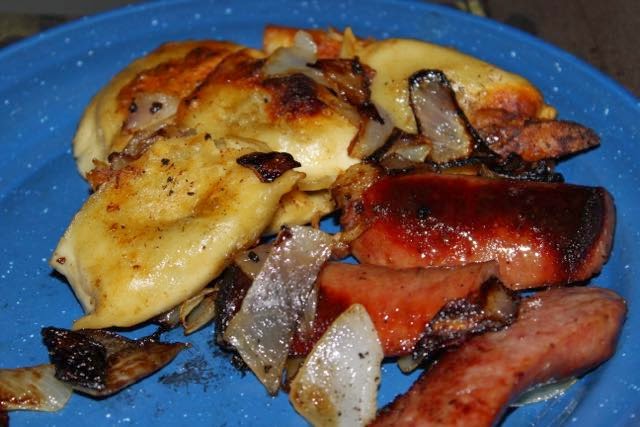A version of this yarn seems to have appeared in the Summer 2015 Edition of The Drake Magazine.
By Jon Atherton
By Jon Atherton
We were 17, just legal driving age, when we first went to Colin's
parents' cottage in the north-west Highlands of Scotland. The Assynt region is
as remote a place as exists on the British mainland, and probably the isles
too. The house was two windows and a door, two wind beaten bedrooms upstairs,
an outside toilet when we cared to reach it, and for many years no shower or
bath. It sits on the side of the Atlantic Ocean. Across the sea is the town of
Stornoway, the hub of the Outer Hebrides, and then America. Sheep graze the
grass, but otherwise the place hasn't changed in centuries.
We'd already been hooked on fly fishing by our
first visit when my friend Grant wandered three-quarters of a mile up the hills
at the back of the cottage to see what he could see. The cliffs to the ocean
were steep, but over the final brow he saw a puddle, no more than an acre and a
half, two at most, nestled in a hillside bowl. Cows and sheep roamed the unwieldy croft and an old sheeling ruin sat at the access point to the water; designed, no doubt, to provide shelter and amenity to the farmer and his cattle.
We fished it the night after Grant's discovery, and
like most Highland puddles we found that the Loch at the Back contained
free-rising wild brown trout. Five or more to the pound, mostly, with the odd
surprise in the 3/4lb bracket, and maybe an old cannibal, though we never found
out. Colin reminds me that we fished with Invicta, Loch Ordie, Silver Butcher,
Alexandria and a few others. Probably a Greenwell's Glory. They weren't as
romantic then as they seem now. They were just how you fished.
 The place is special because we were kids. Nobody
went there, and nobody goes there. You'll never visit. But this is where we
learned what fishing was and a bit about the lesser matters of how to do it.
Don't stand in one place, and before you get there, cast your fly-line onto the
bank, only leader touching the puddle's margins, and trout will swirl and take
– this is the sort of magic that never leaves you. In moorland acid, the fish
were stunted from only wind-blown heather flies and other spartan fare. Midges,
mostly. I learned not to wade at this place. I probably learned to smoke there
too, purely out of self-preservation. The dreaded midges were murder on a calm
night, and we'd beat it back to the cottage to play cards and evolve our way
through varied drink and recreational drugs.
The place is special because we were kids. Nobody
went there, and nobody goes there. You'll never visit. But this is where we
learned what fishing was and a bit about the lesser matters of how to do it.
Don't stand in one place, and before you get there, cast your fly-line onto the
bank, only leader touching the puddle's margins, and trout will swirl and take
– this is the sort of magic that never leaves you. In moorland acid, the fish
were stunted from only wind-blown heather flies and other spartan fare. Midges,
mostly. I learned not to wade at this place. I probably learned to smoke there
too, purely out of self-preservation. The dreaded midges were murder on a calm
night, and we'd beat it back to the cottage to play cards and evolve our way
through varied drink and recreational drugs.
June became our favorite month in the Highlands,
and we came back every year for what seemed like 10 years. A bit early for
sea-trout, and back then too broke for summer salmon, but in early June the
trout would be awake and still reliably hungry. It became our home and a place
we cared passionately for.
I remember going to the Loch at the Back on my own
a few times. Appealing things were going down in the cottage and the hike was
unappealing for a teenager and then later for a twenty-something, but that last
brow before the water was something. I've never been surer of exclusive rights,
and the trout were plentiful and easy. One night I crested the last hill and
saw a red stag at the water. The paintings call this guy "the monarch of
the glen" - more a Scottish cliche than shortbread and bagpipes - but the
sight will make a lad feel rightfully small and rightfully humbled. These are
the experiences, I think. Walking alone on a Highland hill and seeing
that.
Grant reminds me of an important point. Leaving the
Loch and returning to the ocean for our downhill walk to the cottage wasn't
just a bonus. This being the longest month in the North, the sun dips for only
a few, cloudy hours, and only enough to make the Atlantic look like the largest
thing you can imagine, the faraway street lights of old Stornoway visible in the west. I
thought it was the edge of the world. Another 50 pence for the Cottage's
electricity meter and lights up; we'd get on with being teenagers.
Years later, and now transplanted to America, I
took my girl back to the cottage and proposed to her right there on the beach
below the Loch. I don't think she minded sharing my bond with the place, and
I'm glad about that because I don't go there now and I have more reasons to
remember it. This year Colin's father parted with the cottage and I suspect it
will feel bad for them for some time. It was my home too, but I can only be
grateful. My friend sent me a picture of the Loch at the Back today. Other than
our own photos, it’s probably one of just a few, and one that even fewer will
see. I opened it on the 38th floor of a skyscraper overlooking Central Park in
New York City.













